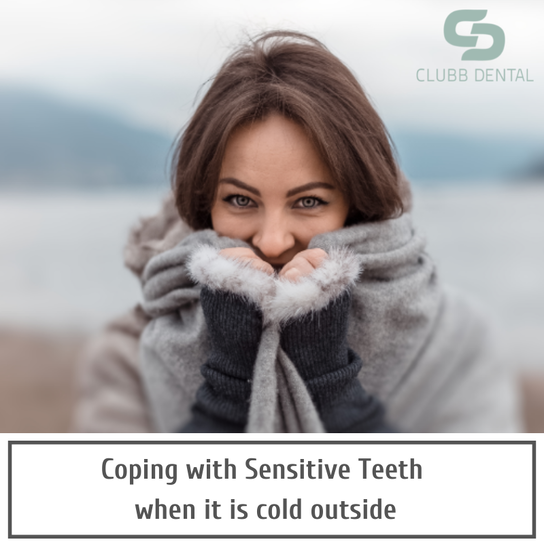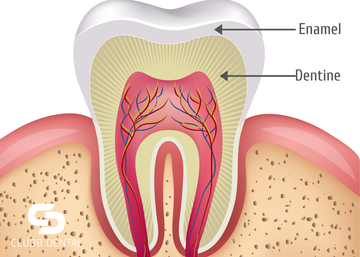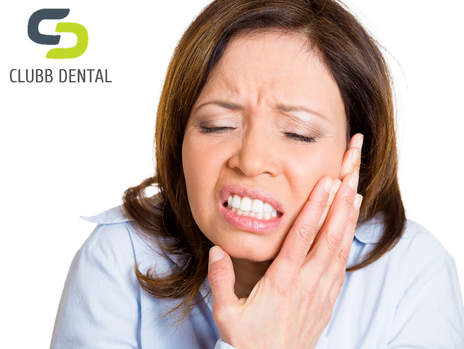Some people experience tooth sensitivity to cold foods and drinks.
Now that winter is here, and the air is a bit cooler, this cold air can cause tooth sensitivity and discomfort for many people.
This can especially be a problem when exercising early in the morning but there are some ways of coping with sensitive and minimising tooth pain during winter.
PROTECT YOUR ENAMEL
The crown (or top) of your tooth is covered with enamel.
Your enamel is the hard armour around the outside of your tooth.
The inside of your tooth is called dentine and this is filled with microscopic nerve endings.
The dentine is much softer than the enamel and needs the protection of the enamel.
If the dentine is exposed then you can experience tooth sensitivity
When your enamel is damaged then breathing cold air can cause pain and discomfort.
Your enamel is the hard armour around the outside of your tooth.
The inside of your tooth is called dentine and this is filled with microscopic nerve endings.
The dentine is much softer than the enamel and needs the protection of the enamel.
If the dentine is exposed then you can experience tooth sensitivity
When your enamel is damaged then breathing cold air can cause pain and discomfort.
Enamel can be damaged by:
* Brushing your teeth too hard
* Brushing your teeth with a hard toothbrush
* Grinding your teeth especially at night
* Regularly eating or drinking acidic foods or beverages
* Some medical conditions can also wear down enamel
* Broken or chipped teeth can have dentine exposed
* If a filling has fallen out this will expose the dentine.
* Gum recession can leave the root of the tooth exposed where there is no enamel protection
* Brushing your teeth too hard
* Brushing your teeth with a hard toothbrush
* Grinding your teeth especially at night
* Regularly eating or drinking acidic foods or beverages
* Some medical conditions can also wear down enamel
* Broken or chipped teeth can have dentine exposed
* If a filling has fallen out this will expose the dentine.
* Gum recession can leave the root of the tooth exposed where there is no enamel protection
If you are suffering from tooth sensitivity then improving your enamel will improve your tooth sensitivity and decrease the pain that you are experiencing.
If there is a chip or crack in your tooth have this repaired asap.
If the enamel has been worn down then use products with fluoride or desensitizing products such as Sensodyne.
Regular use of these products will improve symptoms of sensitivity.
If there is a chip or crack in your tooth have this repaired asap.
If the enamel has been worn down then use products with fluoride or desensitizing products such as Sensodyne.
Regular use of these products will improve symptoms of sensitivity.
PAY ATTENTION TO NEW PAIN
If you do not normally have sensitive teeth and suddenly start getting shooting tooth pain then make sure you see a dentist about this new pain.
Tooth pain does not mean that you have a dental problem but it is best to have it checked and rule out a dental problem causing the sensitivity
Some tooth pain may have nothing to do with your teeth, for example - infections in your sinuses or an ear infection can be associated with tooth pain as the nerves are very close together.
Tooth pain does not mean that you have a dental problem but it is best to have it checked and rule out a dental problem causing the sensitivity
Some tooth pain may have nothing to do with your teeth, for example - infections in your sinuses or an ear infection can be associated with tooth pain as the nerves are very close together.
KEEP YOUR MOUTH WARM
Ensure you do not have extremes in temperature for your teeth, for example being outside in the cold and then having a hot cup of tea will bring on tooth sensitivity.
You can breathe through your nose when the air is cool to protect your teeth or even cup your hands around your mouth to create a warm pocket of air or use a scarf to create a warner air pocket.
You can breathe through your nose when the air is cool to protect your teeth or even cup your hands around your mouth to create a warm pocket of air or use a scarf to create a warner air pocket.
We are lucky living in Brisbane that we do not have very much winter to have to deal with cold air causing tooth sensitivity.
This doesn't stop tooth sensitivity being a problem for the rest of the year when eating or drinking hot or cold things.
Talk to us at your next checkup if you have a problem with tooth sensitivity as there are treatments that can really help or arrange an appointment today.
This doesn't stop tooth sensitivity being a problem for the rest of the year when eating or drinking hot or cold things.
Talk to us at your next checkup if you have a problem with tooth sensitivity as there are treatments that can really help or arrange an appointment today.
If you have any further questions about Tooth Sensitivity or any other dental question please give us a call or send us a message, we would love to help.
RELATED POSTS
If you have loved this blog and would like to receive more straight into your inbox click below.
Services |
Company |
|











